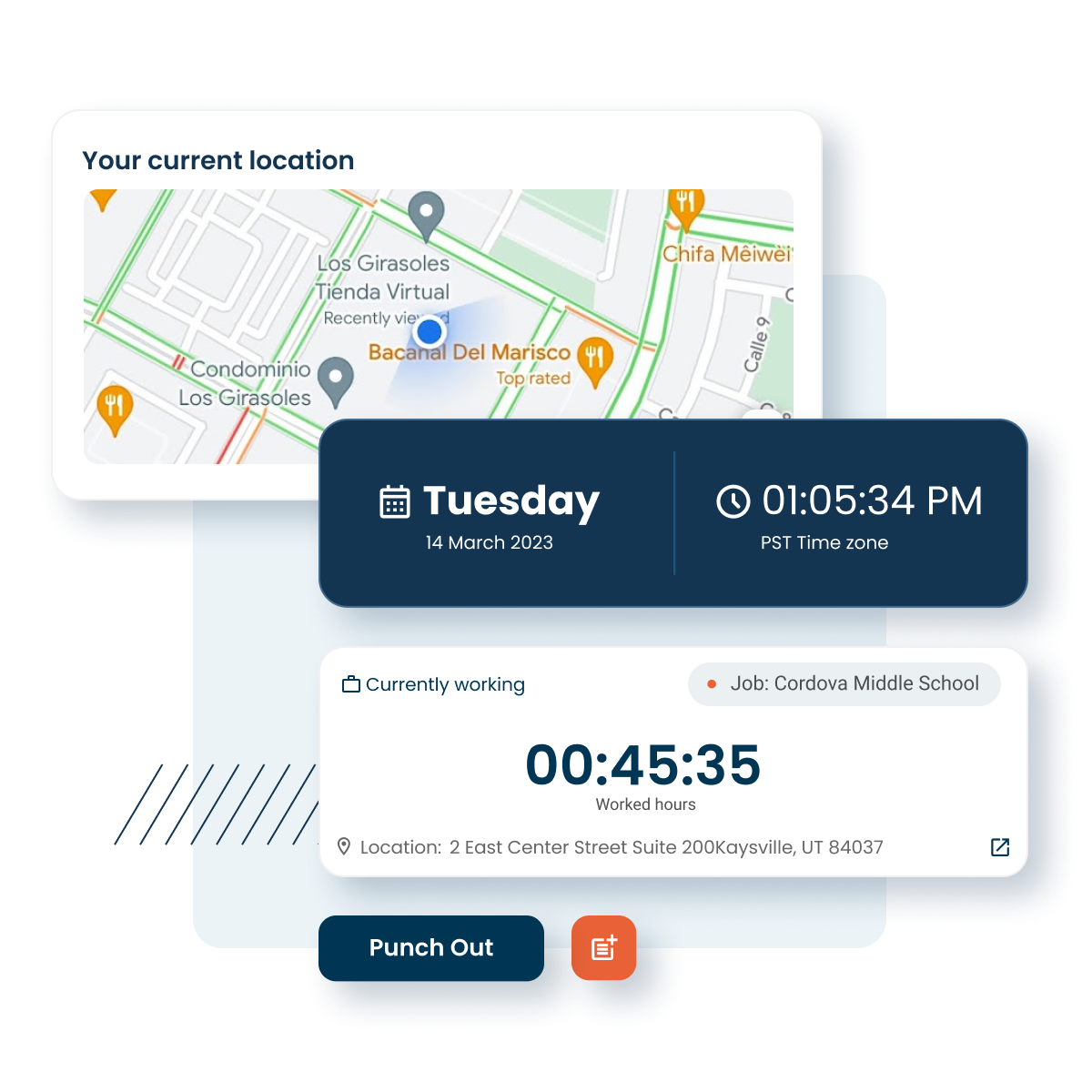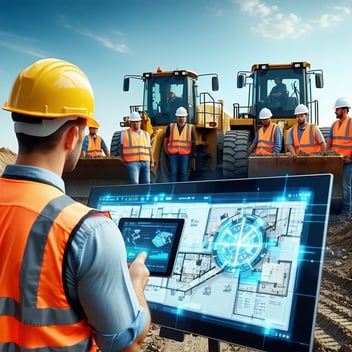Geofencing, a GPS and RFID-based technology, is reshaping industries from advertising to logistics, and construction is no exception. For construction companies, accurate time tracking can be a constant challenge—remote job sites, manual errors, and time theft all add up to lost time and money. Geofencing offers a powerful solution to streamline time tracking and elevate project management.
In this article, we’ll cover what geofencing is, how it works, and why it’s a game-changer for construction payroll and project management.
What is Geofencing for Time Tracking?
Think of geofencing as a digital fence around your job site. By setting up a virtual boundary, geofencing uses GPS or RFID to track employees as they enter or leave a site. When an employee crosses this boundary, time-tracking software automatically logs their clock-in or clock-out time. This eliminates manual entries, reduces errors, and ensures payroll is accurate.
How Geofencing Differs from Traditional Time Tracking
Traditional time tracking often relies on physical check-ins or manual entry, leaving room for errors, missed punches, or time theft. Geofencing solves these issues by automating time tracking based on location. When employees arrive on-site, they’re automatically clocked in—no need for manual input, and no risk of “buddy punching.” This automation reduces payroll corrections and helps track real-time attendance.
Benefits of Geofencing for Construction Companies
1. Improved Accuracy in Time Tracking
Time tracking in construction is complex, with crews working on different schedules across various sites. Geofencing removes manual entry errors and keeps time logs accurate. Supervisors no longer need to chase down timesheets, and employees are automatically clocked in when on-site.
2. Better Job Costing
Accurate time tracking ties directly into job costing. With geofencing, you’ll have a precise record of labor hours spent on each project, which helps with budgeting, cost control, and keeping projects financially on track. Supervisors have a clear view of labor hours, reducing guesswork and improving project planning.
3. Enhanced Accountability
Time theft is costly in construction, especially when employees clock in for one another or report incorrect hours. Geofencing ensures that only employees on-site are logged, creating an accountable, fair system. This transparency helps manage payroll costs more accurately and prevents time theft.
4. Simplified Payroll Processing
With geofencing, payroll processing becomes faster and more reliable. By integrating with payroll systems, geofencing automates time entry, reducing manual adjustments and streamlining payroll. This efficiency means fewer errors and faster, more accurate paychecks.
How Geofencing Enhances Project Management
Beyond payroll, geofencing provides real-time visibility into workforce locations, helping project managers allocate resources across multiple job sites. Managers can monitor activity and make timely adjustments to staffing, ensuring that each site is properly resourced and work stays on schedule.
Geofencing also makes labor distribution more efficient. If one site is overstaffed, managers can redeploy workers to other projects, optimizing labor allocation to avoid delays and budget overruns.
Addressing Compliance Challenges with Geofencing
Labor compliance is crucial in construction. Geofencing helps meet regulatory requirements by automating overtime and break tracking. This reduces compliance risk and ensures that labor records accurately reflect hours worked.
Geofencing also supports certifications, allowing only certified employees to access specific sites. This integration ensures compliance with safety and regulatory standards, keeping unauthorized personnel off restricted areas.
Implementing Geofencing for Construction
To get started with geofencing, follow these steps:
- Choose the Right Software: Select a time-tracking system that includes mobile geofencing, easy integration, and customizable boundary settings. Ensure compatibility with payroll and project management tools.
- Set Accurate Boundaries: Define geofence areas carefully to capture time correctly when employees enter or leave the site.
- Train Your Team: Explain how geofencing benefits accurate timekeeping and payroll. Offer training to show employees how the mobile app works and reassure them about privacy.
Addressing Privacy and Connectivity Concerns
Geofencing only tracks clock-in and clock-out times when employees enter or exit job sites, not their location during off-hours. This job-focused tracking respects privacy while providing timekeeping accuracy.
For remote sites with limited GPS connectivity, geofencing software with offline functionality ensures time data syncs when a connection is available, keeping records reliable.
Take Advantage of Geofencing Technology
Geofencing offers construction companies an edge with improved time tracking, cost control, and project management. For payroll and project managers, it’s time to consider geofencing to simplify payroll and support compliance. Book a demo with hh2 to see how geofencing can improve accuracy, accountability, and efficiency on your job sites.


